Last week I referenced the practice of journaling as a tool to prepare yourself as leader for “presencing.” Journaling is like panning for gold: you’ve got to sift through a lot of dirt and gravel to capture a few flakes—nuggets, even—of valuable gold!
Until you grow a self-sustaining business, you are likely one of your business’s key assets. As you gain clarity about who you are as a leader, shaping the business—as you pan for your gold dust and gold nuggets—you’ll bring your “gold” to the business and in fact be able to “sell” both the mining process and the gold itself!
Last week I introduced the elusive concept of coming to a place beyond “knowing what you don’t know”: “not knowing what you don’t know.”
There are at least two challenges with doing the latter:
- It is impossible to do something you don’t consciously know.
- Doing so makes you excessively vulnerable and it’s unwise to do that with employees, customers, vendors or partners.
Journaling allows us the freedom to practice self-reflection safely. If we don’t do this? We will have a false, smug sense of confidence in merely “knowing what you don’t know”—a mound of fool’s gold, iron pyrite.
How can you begin to lead the way so that they are practicing “presencing”?
How can you begin to “not know”?
You can:
- Participate in 3to5 Clubs or similar mastermind-like groups
- Hire a coach
- Journal
[full disclosure: I help clients with all of these above services]
Journaling is ideal when you who want to begin to pan for your own “not knowing,” that gold dust that resides in the core of your being, deep “underground.” Many of us are in service businesses where there is no physical product. Writing about what we do brings our work outside ourselves and potentially anchors it into reality. Finding the gold nuggets of what we don’t know can help us capture its full value. Consider the expert programmer, architect, marketer, salesperson, planner, composer or musician who does what they do but cannot tell you (or teach you) how they do it.
Why is this worth your time to journal?
- You are likely your company’s most valuable asset! You need to invest in you. Steven Covey reminds us that we all need to take time out to “sharpen the saw” lest cutting wood becomes arduous, impossible, and even dangerous.
- Consider the adept business owner, leader, or technician. You are successful because of what you do. Now you need to get it out of your head and on paper!
- Journaling can be the essential precursor to building value into your business and insuring legal and regulatory compliance as well.
- Journaling will allow you to discern patterns—part of your “not knowing.”
If something works, you can do more of it. If it hinders you, you can and should do less of it!
“Those who don’t know history are destined to repeat it.”
—Edmund Burke
If you’re convinced of the value of journaling, how do you get started?
- Choose one of the above reasons and remind yourself when you would rather NOT do it.
- “Just do it”
- Use pen/paper if you want to engage your emotions more fully.
- Use whatever medium is easiest for you (iPad, Word doc, blogging software, etc.)
How do you sustain this new practice?
- Set a day, time, place, and frequency. Be realistic.
- Whatever you can do to make journaling easy will allow you to begin ingraining this habit.
Toolkit:
I’ve developed a new tool to help you on the journey:
Discovering Your Gold Dust
Date:
Time:
Place:
This daily exercise will help you to pan for your “gold dust”—the “not knowing what you don’t know.”
“Gravel” from the day:
Examine the “gravel” from your day.
Make a quick list of all the painful or problematic or disappointing things that happened in your firm today to get it out of your system.
“Gold dust” from the day:
Our natural inclination is to focus on the frustrations from the day. Like a miner panning for gold, use the pan of gratitude to find the “gold dust” in your ton of dirt from today. What are the good things that happened today?
ONE next step for tomorrow:
Pick one thing you’re grateful for and use it as a building block for tomorrow. (Don’t worry about the gravel—you’ll naturally address whatever frustrates you!)
What patterns are emerging?
Pattern recognition is the beginning of that knowledge. What can you do more of? Less of?
“Discovering Your Gold” Copyright 1/9/2013 Jon Hokama and Associates



